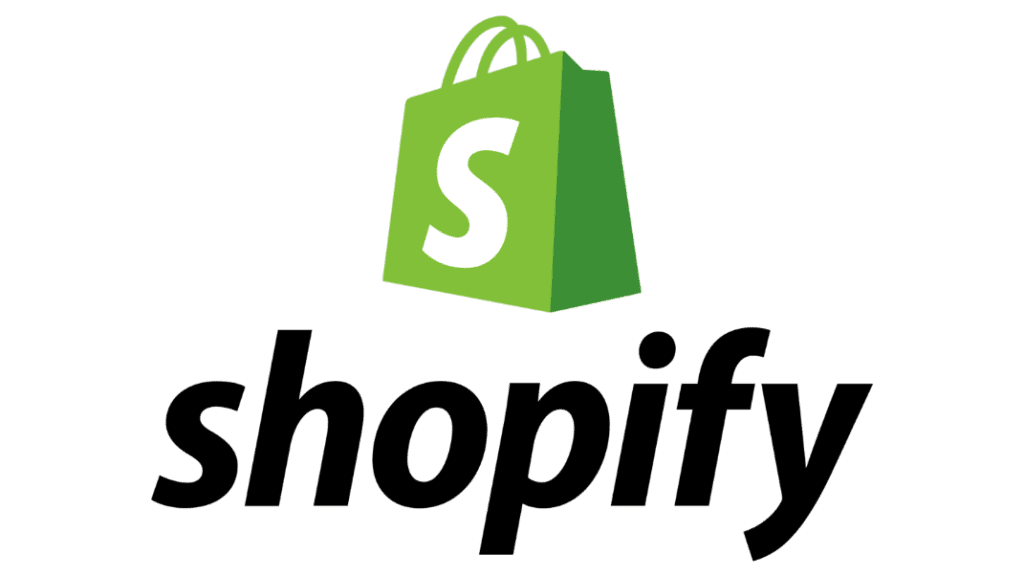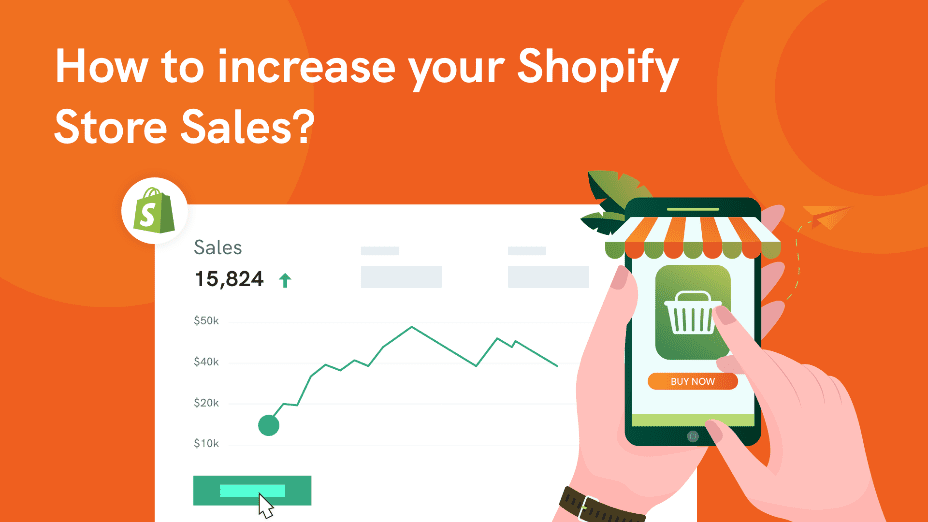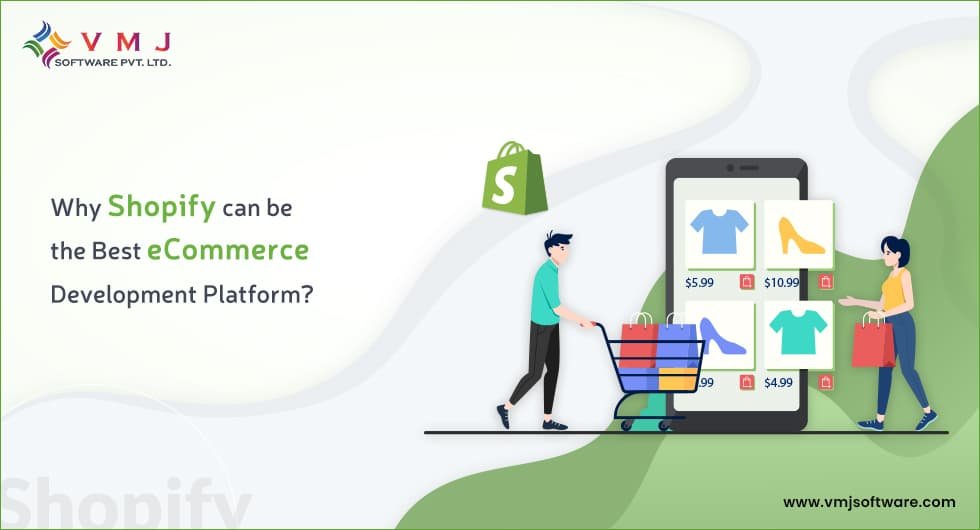We will discuss everything you need to know about Shopify:
- What is Shopify?
- Why is Shopify best suited for your business?
- 1. Shopify pricing plans
- 2. High-quality templates and themes
- 3. User-friendly interface
- 4. Content layout
- 5. App store
- 6. Import and Export of products and data
- 7. Product categories and collections management
- 8. Shipping
- 9. Dropshipping
- 10. Payment Options in Shopify
- 11. Digital Selling
- 12. Sales tax handling
- 1. Shopify pricing plans
- What more does Shopify offer to increase your business growth?
- How does Shopify contribute to increasing sales?
- How does Shopify support driving more traffic to your website?
- Is Shopify secure?
- Conclusion

Selecting the right e-commerce platform for your business is quite a tough decision to make. It is an involved process based on your product, business size, level of expertise, and much more. This article, Shopify: everything you need to know about Shopify, will help you with it.
However, now that the role of e-commerce in increasing sales and revenues is crucial, we can see its hold in multilateral trading systems. So, it certainly is an opportunity that you can take advantage of. Shopify is one such e-commerce solution that has excelled in providing users with the best working experience.
It is a 16 year old platform created back in 2006. It has reached about 175 countries with 1,700,000 operating businesses. But is it a suitable fit for your business? Or it would help if you opted for other alternatives such as BigCommerce, WooCommerce, etc. To overcome this confusion, I am giving you a detailed review of Shopify and what it offers to make your business stand out.
What is Shopify?

Shopify is an e-commerce web application that allows you to build your own website to sell products online or offline. It provides you with various tools to create, run and grow your own business through customized themes without getting into the technical stuff of coding or hosting.
How do things work in Shopify?
Shopify is a dedicated SaaS (software-as-a-service) e-commerce platform where you can sell digital or physical products by launching your own store without any fuss. You can start by visiting its main website and creating an account there. It is a cloud-based hosted solution, so you only need the internet to use it.
It provides you with a 14-day free trial to check it out. You can build your store during this period but cannot sell products until you opt for a certain plan. Only then will Shopify charge you monthly fees.
Watch our video Is Shopify The Best For Online Stores? | Pros & Cons of Shopify.
Is Shopify a suitable option?
Shopify fits almost every business. It is a trusted platform for selling, shipping, and processing payments worldwide. With its scalability, third-party integration, affordable pricing, easy usability, and offline support, it is an option that is worth considering. Whether you are just starting, want to take your business to the next level, or shifting your physical store online, Shopify supports your smaller or larger stores with utmost satisfaction.
Why is Shopify best suited for your business?
The following extensive features of Shopify will clear your doubts about why it is one of its kind in the online e-commerce industry today.
1. Shopify pricing plans
Shopify offers three basic pricing packages.
| Shopify’s pricing plans | Basic Shopify | Shopify | Advanced Shopify |
| What is it about? | It involves all the basic tools required for starting a new business. | It provides you with everything you need for a growing business. | Its advanced features help you with the scalability of your business. |
| Monthly fees | $29 | %79 | $299 |
| Online credit card rate (with Shopify payments) | 2.9% + 30¢* | 2.6% + 30¢* | 2.4% + 30¢* |
| In-person debit/credit card rates | 2.7% + 0¢* | 2.5% + 0¢* | 2.4% + 0¢* |
| Transaction fees with external gateway | 2% | 1% | 0.5% |
| Staff accounts | 2 | 5 | 15 |
| Inventory locations | Up to 4 | Up to 5 | Up to 8 |
| Shipping discount | Up to 77% | Up to 88% | Up to 88% |
Other plans to fit in different budgets:
Shopify Lite ($9)
This plan allows selling products on existing websites not hosted by Shopify using a Buy Button. You can also sell offline with Shopify’s POS (Point-of-sale).
Shopify Plus (Custom price)
It supports the scaling of larger businesses with its special features offering advanced reports, capacity for managing higher order volumes, etc.
Note: There is no transaction fee while using Shopify’s payments.
2. High-quality templates and themes
Shopify provides you with a wide variety of templates to fit in different business categories. A handful of themes are free; otherwise, you can choose from professionally built premium themes that range from $140 to $180. They are all functional and mobile-responsive.
3. User-friendly interface
Shopify’s interface is quite intuitive. You can easily design and organize elements in your website. It is a convenient pick for beginners or users with less technical expertise.
4. Content layout
Some of the free Shopify themes stills work with WYSIWYG (What You See is What You Get) editor, which does not allow much flexibility in laying out content. But with Shopify’s new Online Store 2.0 format, you can get more power to present and edit your content. You get access to drag-and-drop functionality. Moreover, custom sections help create a unique user experience.
5. App store
Shopify is the biggest platform offering more than 6000 apps to its users. You can excel in your website by extending its functionality using many such applications. By browsing Shopify’s app store, you can get more marketing tools, in-depth analytics, store design tools, inventory management, etc.
6. Import and Export of products and data
If you want to upload products to your store in large numbers or migrate data from some other e-commerce platform such as BigCommerce, Squarespace, and Etsy, Shopify allows you to do it in two ways:
- With a CVS file
- Shopify’s “Store Importer” app.
In the case of exporting data, you can use either of the following ways:
- CVS file
- Shopify’s API
- A third-party app such as Exlm.
7. Product categories and collections management
Shopify remarkably handles product categories. You can manually add products or use its “automated collections” feature. As a result, it saves time with large product ranges.
8. Shipping
Shopify provides flexibility in managing your shipping options. You can set rates based on the following factors:
- Weight
- Order Value
- Location
Shopify’s Advanced plan lets you unlock shipping rates calculated by the third party to show your customers courier prices at checkout. You also do not need to bother sourcing your own courier as Shopify is a partner with DHL Express, UPS, Canada Post, and USPS. In addition, the “Shopify Shipping” service allows you to print shipping labels and provide preferential shipping rates.
9. Dropshipping
Dropshipping is a new business model, but it has become quite popular. Shopify is an acknowledged leader when it comes to dropshipping in e-commerce. It involves selling products through a supplier without keeping hold of the inventory.
You make a profit by paying the wholesale price to the supplier and controlling the price of the products displayed in your store. Therefore, Shopify is an economical option for start-ups or small businesses. This feature is available in Shopify’s app store.
10. Payment Options in Shopify
PayPal, Amazon Pay, Apple Pay, and Stripe are among the 100 payment gateways that Shopify offers to its users other than its own payment system, i.e., Shopify Payments.
11. Digital Selling
You can sell digital products on Shopify, for which you need to uncheck the shipping checkbox while adding your product.
Installing the “Shopify Digital Downloads app” is mandatory if you are selling digital products or services; otherwise, your customers can not download them.
12. Sales tax handling
Tax laws and regulations vary depending on the country. When sales tax is applied to specific products, Shopify handles the problem through automatic sales tax calculation. You can also override these taxes to deal with exceptional tax situations.
What more does Shopify offer to increase your business growth?

The following features can play a vital role in the rapid growth of your business.
1- Online Store 2.0
It is Shopify’s biggest investment in the platform. It will give merchants an improved experience of customized websites with increased ownership and flexibility to grow their businesses quickly and successfully.
2- Shopify Point of Sale (POS)
It is a feature worth considering and gives an edge to Shopify over its competitors. Shopify’s POS application allows the users to sell products offline and keep the physical and digital sales and inventory data in sync. Point-of-sale tools will enable you to sell at:
- Brick and mortar retail store
- Trade shows
- Pop-up shops
- At an event
Shopify’s hardware store makes a wide range of hardware available to help you run businesses through physical locations. All price plans support this app, and you can accept payments through iPad, iPhone, or Android.
3- Building a multi-lingual website
Shopify lets you create a website where you can sell worldwide in multiple languages. Apart from Shopify Lite, if you opt for other plans, you can produce about 20 versions of your website translated into different languages.
You can expand your business and attract an audience globally by displaying your store in local languages using international domains.
4- Accepting multiple currencies
With Shopify’s website, you can display product prices and facilitate checkout in local currencies. As a result, it will provide visitors with a comfortable buying experience, ultimately improving sales.
How does Shopify contribute to increasing sales?
1. Mobile responsiveness
All the themes in Shopify are mobile-responsive, which provides a smooth shopping experience to customers.
2. Abandoned cart recovery
This functionality helps you identify the users who visited your store but left the purchase incomplete after adding products to the cart. You can send reminders to them with encouragement which is usually a discount.
3. Multi-Channel Integration
Shopify lets you build different sales channels, including:
- Your own online store
- A shop tab on the Facebook page to browse and buy products
- A Buy Button on any website or blog
- Shoppable Instagram posts.
- A password-protected separate Wholesale storefront for B2B selling. (For Shopify Plus only)
You can also connect with more powerful channels such as Amazon, Etsy, eBay, and Pinterest with the help of third-party apps.
4. Shopify SEO
Good search engine optimization plays an important role in increasing your business’s sales by driving more traffic to the website. It makes you visible and reachable to the audience. Shopify’s SEO works effectively. It has many built-in apps and features that help your website rank well.
How does Shopify support driving more traffic to your website?
1. Blogging
You can write blogs relevant to your business. For example, it would help customize your website and increase its chance of appearing on the initial search result pages. In addition, blogging helps increase customer engagement and build their trust, to keep them coming back.
2. E-mail marketing
It is an effective way of keeping your customers connected to your store. Hence, you can promote your products and keep them updated with Shopify’s built-in e-mail tool.
Is Shopify secure?
Yes, Shopify is completely safe for your website as it protects against cyber threats. It also takes responsibility for running updates and abides by online transaction rules.
Shopify’s strengths and limitations
Strengths
- Shopify’s detailed admin entails an extensive range of reports and features to give you an in-depth understanding of your online store’s performance.
- Shopify uses a cloud network that eliminates the chances of your website crashing and losing money in times of big events.
- Shopify supports merchants in learning new business tactics through Shopify Compass, where they can take up free e-commerce courses.
- Shopify accommodates even tight-budgeted investors, as it offers plans for everyone.
- It enables you to access a wide range of highly functional apps and features.
- It is an affordable option to start your own business.
- Shopify gives you ownership and control over your business.
- It helps you with 24/7 customer support in case you face any problems.
- This e-commerce platform is optimized for the great site, speed, and SEO.
- You can get support from numerous Shopify partners.
Limitations
- The progress of your business is based on your marketing abilities, Shopify can help build and promote your business, but success is in your hands.
- Monthly fees increase with the use of additional paid apps.
- Reports are not accessible with the Basic Shopify plan.
- You can deal in multiple currencies when you are using Shopify Payments.
- You can set product prices per different countries only if you opt for the “Advanced plan” or higher.
- You need to buy a third-party app to exceed product variants and options. In Shopify, only 3 options are available for 100 variants of a product.
- The transaction fee is compulsory if you use a third-party payment system.
- You will have to get acquainted with Shopify’s Liquid code if you need extensive customization of your website or hire an expert.
- You will need to pay for additional plugins to use comprehensive SEO features such as customer ratings and reviews.
Conclusion
Shopify is an excellent e-commerce platform accommodating users with diverse business needs. Its outstanding range of apps and features gives it a competitive edge over its alternates. With a good business plan in hand, you can use this substantial opportunity of getting associated with Shopify and start your journey to build your own thriving business. Visit my site Somquest to learn more.
Check our Article: Top 5 Reasons Why Shopify Is The Best E-commerce Platform

